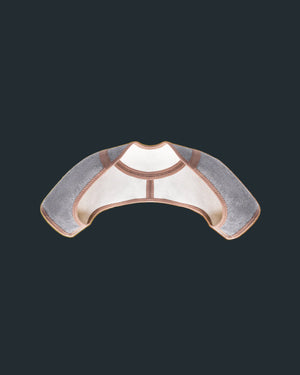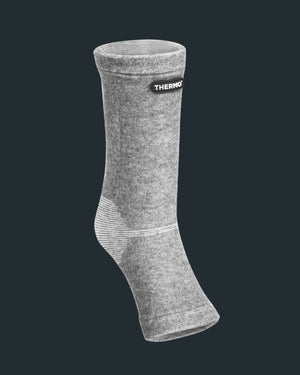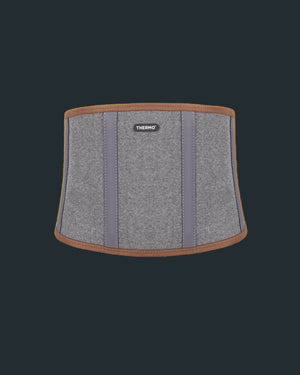Discover the crucial concept of underrecovering, its signs, and strategies to enhance recovery. Maximize your fitness journey with the right balance!
Pushing your body to its limits can be exhilarating, but it's crucial to balance training with adequate recovery time. Too often, fitness enthusiasts overlook the importance of recovery, resulting in a state of underrecovering.
This condition, characterized by persistent fatigue, decreased performance, and various other signs, can hinder progress and negatively impact overall well-being. This article explores the critical concept of underrecovering, its warning signs, and how to combat it effectively.
The Difference Between Overtraining and Underrecovering
There’s a thin line between pushing hard and pushing too hard. That's where the concepts of overtraining and under-recovering come into play.
Overtraining happens when you constantly challenge your body without giving it enough time to recuperate. It's as if you're running a car engine on high revs without giving it a chance to cool down.
Over time, this constant high intensity can lead to burnout, injuries, and a noticeable drop in performance.
On the other hand, under-recovery, although similar to overtraining, presents a slightly different perspective. The focus here is not on the intensity or frequency of your workouts but on what happens between them.
It's like having the perfect fuel for the car but forgetting to refuel it after each race. Under-recovery means your body isn't getting adequate rest, nutrition, or care it needs after a workout to fully recuperate before the next training session.
Understanding the distinctions between these two can be a game-changer in your fitness journey, helping you avoid unnecessary setbacks and keep your performance on an upward trend.
7 Signs of Underrecovering
Here’s how you know that you’re not giving your body the recovery it needs:
1. Decreased Performance
When your body is under-recovered, one of the first red flags can be a noticeable drop in your performance. You might find that you can't lift as heavy, run as fast, or last as long in your workouts as you used to.
This diminished performance is not about day-to-day fluctuations; all athletes have their off days. Instead, it's a consistent downward trend in your abilities, affecting workouts that previously felt manageable.
What's happening here is simple: your body isn't getting enough time or nutrients to repair the tissue breakdown from intense training sessions.
As a result, you're starting your next training session without fully recovering from the last one. The cumulative effect of this can lead to a decline in fitness levels and a lack of progress in your training program.
2. Increased Fatigue
Increased fatigue is another potent sign that your body is under-recovering. This type of fatigue is more than just feeling a bit worn out after a tough workout—it lingers.
You might find yourself feeling worn down all the time, even on rest days. You might also notice a lack of energy and motivation, not just for your next training session but for daily activities as well.
This enduring fatigue stems from the body's inability to fully recover and restore energy levels between training sessions.
You're essentially asking your body to perform on an empty tank, leading to a constant state of exhaustion. Recognizing this sign is crucial; it's your body's way of telling you it needs more time or resources to recover.
3. Consistent Muscle Soreness
Consistent muscle soreness is another telling sign of under-recovery. While it's normal to experience some degree of muscle soreness after a workout, particularly after an intense one, prolonged or persistent soreness is a different story.
If your major muscle groups are constantly aching and the pain persists beyond the typical 48-hour recovery period, it's likely your body isn't getting enough time to heal the microscopic damage caused by your training sessions.
Essentially, you're starting new workouts before your muscles have had the chance to repair and fully strengthen from the last one.
Listening to your body is vital here. Chronic soreness is your body's distress signal, indicating it's time to reassess your training intensity, volume, or recovery routine.
4. Mood Swings
Do you find yourself feeling irritable or unusually down, and it's not just a case of the "Mondays"? These unexpected mood swings could be a sign of under-recovering.
Physical exertion from intense training influences more than just our muscles; it affects our entire system, including our brain and mood. The chronic stress placed on the body can disrupt hormone balance, leading to mood swings, irritability, or feelings of depression.
If left unchecked, these emotional fluctuations can interfere not just with your training program but with your overall quality of life.
It's important to recognize this sign and take action, whether that means scaling back your training schedule, improving your sleep quality, or seeking guidance from a fitness professional or health care provider.
5. Loss of Appetite
When you're exerting energy during intense training sessions, loss of appetite is counterintuitive. However, this symptom can be a clear signal that your body is under-recovering.
Chronic stress can interfere with your digestive system's normal function and subsequently impact your desire to eat. You might find that you're less hungry than usual, or you might skip meals altogether without feeling hungry.
This symptom is particularly disturbing because adequate nutrition is key to recovery. Your body requires high-quality protein to repair muscles, carbohydrates to replenish energy stores, and fats for hormone production.
Ignoring your body's nutritional needs can impact your overall health and prolong the recovery process. Remember, food is fuel. If your appetite changes, it's time to reassess your training and recovery practices.
6. Increased Susceptibility to Illness
An unusual pattern of falling ill frequently can indicate that you're under-recovering. When we put our bodies through rigorous training sessions without adequate recovery, our immune function can take a hit, making us more susceptible to common illnesses like colds and flu.
Intense training stimulates the production of stress hormones, which, over time, can suppress our immune system. If you notice you're getting sick more often than usual, evaluating your recovery routine is essential. Proper rest, nutrition, and stress management are key to keeping your body resilient and ready for the next workout.
This is another instance where tuning into what your body is signaling is critical to maintaining your health and training progress.
7. Too Tired to Wake Up Even After a Good Night’s Sleep
The last sign of under-recovery we'll discuss is feeling too tired to wake up, even after a full night's sleep. This feeling is not about struggling with the snooze button once in a while; it's about a persistent sense of exhaustion that doesn't improve with extra sleep.
Exercise and training should generally improve sleep quality and energy levels during the day. If you're constantly exhausted despite getting adequate sleep, it could indicate your body is struggling with under-recovery.
This exhaustion stems from the continual strain on your body's ability to heal and rejuvenate itself overnight. Both quantity and quality of sleep are crucial to give your body the time it needs to restore energy reserves and repair muscular and cellular damage incurred during training sessions.
In essence, if getting out of bed feels like a monumental task day after day, it's a clear sign your body needs a more balanced approach to training and recovery.
How to Improve Your Recovery
Here’s what you can do to get your body back on track:
1. Put on Thermo Recovery Wear
Thermo Recovery Wear is designed to relieve chronic joint and muscle pain. Our wearables are embedded with semiconductors that produce over 62% pain relief when activated by body heat. This makes them comfortable enough to wear all day, providing quick and effective pain relief.
Our range includes products for various body parts, from the ankle, back, elbow, knee, shoulder, and wrist. Our wearables are designed to relieve pain associated with the following:
- Tendonitis
- Sprains
- Arthritis
- Ligament injuries
- Minor tears
- Carpal tunnel
- Muscle fatigue
- Lymphedema
- Swelling
- Back pain
- Disc injuries
- Pinched nerves
- Herniated discs
- Plantar fasciitis
Thermo Recovery Wear products are made from high-quality "Black Diamond" bamboo charcoal fabric. When your body warms the fabric, it releases infrared waves that increase blood flow and delivery of oxygen and nutrients to the affected area.
This decreases inflammation, swelling, and pain, thus accelerating your body's natural healing process.
It's also important to note that Thermo Recovery Wear is an alternative to compression wear, and it has no associated side effects. In fact, customers have described the wear as comfortable, supportive, warm, lightweight, and a great value for money.
We also offer a safe shopping experience, with fast, free shipping on orders over $49 and a hassle-free 30-day return policy.
2. Improve Your Diet
The food you eat plays a pivotal role in your recovery process. A well-balanced diet rich in high-quality protein, carbohydrates, and healthy fats supports muscle repair, replenishes energy stores, and reduces inflammation.
For protein, consider lean meats, fish, or plant-based sources like beans and lentils. They aid in muscle repair and growth.
Carbohydrates are essential for replenishing your energy stores. Whole grains, fruits, and vegetables are excellent sources.
Don't forget healthy fats like avocados, nuts, and olive oil. They help absorb vitamins and protect your heart.
Finally, add colorful fruits and vegetables for the much-needed antioxidants to combat exercise-induced oxidative stress. It's not about extreme diet changes but thoughtful, nutritious choices that fuel recovery.
3. Stay Hydrated
Hydration is a key player in the recovery process. Water supports every metabolic function in your body, including the process of healing and recovery. Being even slightly dehydrated can impair performance and slow down the recovery process.
Ensure you drink enough water before, during, and after your workouts. How much water you need depends on your body weight, the intensity of your workout, and the climate in which you're exercising.
Also, consider adding electrolyte-rich drinks post-workout, especially after intense or long training sessions. They replace sodium, potassium, and glucose, which can help you recover faster and rehydrate more effectively.
4. Reduce Stress
Managing stress is integral to a successful recovery. Chronic stress, whether from intense workouts, work pressures, or personal issues, can inhibit your body's ability to recover efficiently.
Try incorporating stress-management techniques into your routine. This could include yoga, meditation, deep-breathing exercises, or simply taking some quiet time for yourself each day.
A holistic approach to wellness, one that considers mental health as well as physical, can significantly improve your recovery and overall well-being.
5. Rest More Between Exercises
Rest is just as important as training in your fitness journey. Adequate rest between exercises allows your body to repair tissue damage, strengthen the muscles, and replenish energy stores.
Consider incorporating rest days into your workout routine. Also, listen to your body; if you're feeling particularly worn down after a workout, it might be time for a rest day.
Even during your workouts, allow adequate time between sets for your body to recover. This might mean taking a short walk or doing some light stretching before moving on to the next part of your routine.
Remember, pushing through constant fatigue isn't a badge of honor; it's a sign you need to give your body a well-deserved break.
Final Words
Understanding and recognizing the signs of underrecovering is critical for any fitness enthusiast. Balancing intense training with sufficient recovery time, good nutrition, and proper stress management can help maintain your performance, health, and well-being.
Look out for your body, respect its signals, and remember, recovery is an essential part of your fitness journey, not an afterthought.
Boost your recovery even more by relying on the Thermo Recovery Wear; it can be worn 24/7, and it’s the most natural way to recover.





